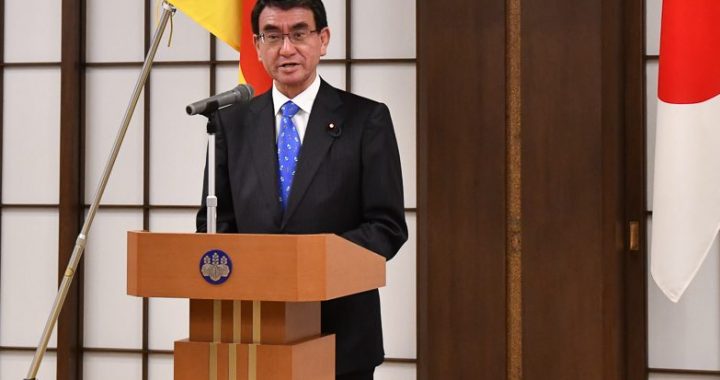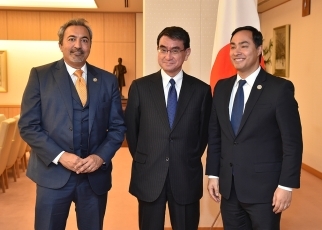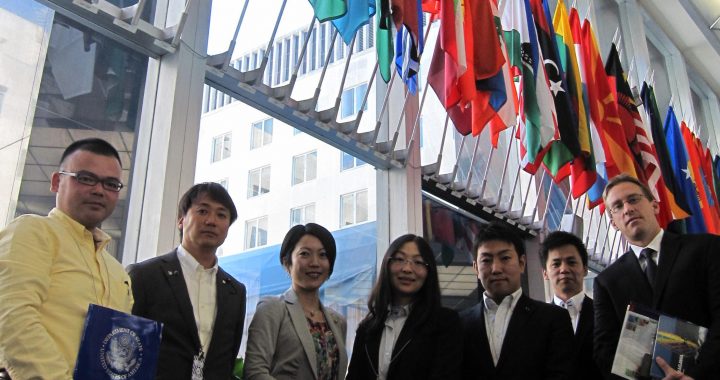Japanese-German Forum

The Japanese-German Forum was created in 1993 as a private, bilateral dialogue designed to promote mutual cooperation and understanding.
Bilateral Policy Dialogues

In the 1980s and 1990s, JCIE/Japan launched a number of annual policy dialogues that brought together leaders from various sectors to discuss the key domestic, bilateral, and international issues of the day.
US-Japan Parliamentary Exchange

The US-Japan Parliamentary Exchange Program brings members of the US Congress and Japanese Diet to one another’s countries for a series of intensive dialogues with leaders from a broad range of fields. Participants in the US-Japan Parliamentary Exchange Program have risen to influential positions in their respective countries with an enhanced understanding of the US-Japan relationship.
US-Japan Young Political Leaders Exchange

In 1973, JCIE and the American Council of Young Political Leaders (ACYPL) jointly launched the US-Japan Young Political Leaders Exchange Program, an annual bilateral exchange program designed to expose young leaders of each country to the politics and policymaking processes of the other country and to enhance their understanding of US-Japan relations.
Japan-EU Grassroots Exchange Project for Community & Local International Cooperation

JAPAN-EU GRASSROOTS EXCHANGE PROJECT FOR COMMUNITY & LOCAL INTERNATIONAL COOPERATION 2005 The Japan-EU Grassroots Exchange Project for Community and Local International Cooperation was held in July 2005. This program was carried out as one of the Japan-EU People-to-People Exchange Year programs, and was intended to deepen understanding of grassroots international cooperation activities and to explore […]
A50 Caravan

In commemoration of the 50th anniversary of the signing of the San Francisco Peace Treaty, which formally brought World War II to a close, JCIE’s offices in Tokyo and New York, along with the National Association of Japan-America Societies (NAJAS) in Washington DC, organized an A50 Caravan. The Caravan featured 15 teams, each consisting of three Japanese participants who represented different generations and a broad spectrum of professions and backgrounds.
Revitalizing Regional Exchanges between the United States and Japan: Examples of Sister-City Exchanges

With the goal of revitalizing sister-city exchanges between Japan and the United States, this project sought to identify ways to overcome the issues that have led to the stagnation of many of these exchanges and to explore appropriate models for sister-city exchange in the twenty-first century.
Ten Years of Asia-Europe Meeting (ASEM)

On the occasion of ASEM’s tenth anniversary, the Foreign Ministries of Finland and Japan sponsored a research project, “ASEM’s Role in Enhancing Asia-Europe Cooperation: Ten Years of Achievements and Future Challenges,” to evaluate the ASEM process and explore future possibilities.
Research Project on the Invigoration of International Cooperation NGOs

Commissioned by the Tokyo Foundation, JCIE conducted a research project to explore policies for revitalizing Japanese NGOs involved in international cooperation activities. The project examined the necessary steps for Japanese NGOs in this field to become a strong presence in Japanese society with the aim of producing concrete recommendations concerning policy measures toward that end.
Exploring Kyushu’s International Strategy

In 2007, JCIE began research on “International Relations at the Local Level in Japan: Exploring Kyushu’s International Strategy.” The study focused on the relationship between Kyushu and its Asian neighbors in light of the proposed amalgamation of Japan’s prefectures through the introduction of a new “regional system.”
